 Here are some shiny things that caught my eye recently:
Here are some shiny things that caught my eye recently:
♦ Do your ears a favor right now and go listen to DJ Carlos Serrano’s awesomely superb mash-up of Adele’s “Set Fire to the Rain” and Daft Punk’s “Something about Us.” Go listen, right now. I’ll wait.
♦ Aren’t you glad you went and listened to it? So, so good. CBC, I hope you listened.
Speaking of good, here’s one of my favorite lines this week, via Caitlin R. Kiernan‘s livejournal: “Art is a hammer. Art is meant to push.”
Also, this thought from E. B. White: “If the world were merely seductive, that would be easy. If it were merely challenging, that would be no problem. But I arise in the morning torn between a desire to improve the world and a desire to enjoy the world. This makes it hard to plan the day.”
♦ At Tor.com, Meghan Deans continues the “Reopening The X-Files” feature by exploring “Clyde Bruckman’s Final Repose,” which is one of my most favorite—and one of the best, period–episodes of The X-Files.
♦ I was disappointed that Rasputin didn’t make this list (thanks to TJ for posting the link on Facebook).
♦ Here’s a book cover that caught my eye this week:
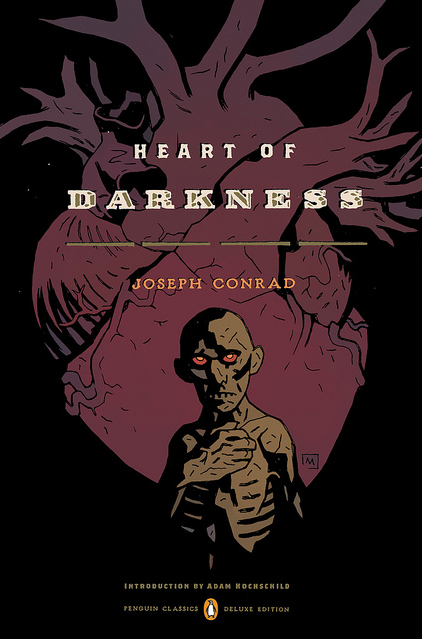 The cover artist is the incomparable Mike Mignola, who does something magnificent with composition and darkness. Jonte gave me the heads up about this cover before I had time to read the Super Punch post on it myself, but give that link a click to see two other book covers that I think are pretty sweet.
The cover artist is the incomparable Mike Mignola, who does something magnificent with composition and darkness. Jonte gave me the heads up about this cover before I had time to read the Super Punch post on it myself, but give that link a click to see two other book covers that I think are pretty sweet.
♦ If you’re interested in fairy tales, then your blogosphere blew up this week with news about five hundred recently rediscovered fairy tales in Germany. Word is that Franz Xaver Von Schönwerth edited these babies a lot less than the Grimms edited their collection, so comparison should be interesting—if we ever see an English translation (Von Schönwerth‘s tales are available in German). However, eminent fairy-tale scholar Jack Zipes, who’s read the tales, isn’t so sure we should get out hopes up for lost gems of the fairy-tale genre.
 Speaking of fairy tales, I ran across two interesting posts this week comparing the upcoming Snow White films, Mirror, Mirror and Snow White and the Huntsman: “Is Snow White a Badass?” by Kit Steinkellner and “Snow White Trailer v. Snow White Trailer: A Sorta Fairy Tale” by Leigh Bardugo. I know where my interest lies now, based solely on the trailers.
Speaking of fairy tales, I ran across two interesting posts this week comparing the upcoming Snow White films, Mirror, Mirror and Snow White and the Huntsman: “Is Snow White a Badass?” by Kit Steinkellner and “Snow White Trailer v. Snow White Trailer: A Sorta Fairy Tale” by Leigh Bardugo. I know where my interest lies now, based solely on the trailers.
♦ For the cartography fans out there, I offer two interesting links:
Maria Popova, over at Brain Pickings, introduces readers to The Booklovers Map of America Showing Certain Landmarks of Literary Geography, designed by Paul M. Raine in 1933. Did you know the birthplace of American literature is Boston? Thank heavens this map confirms it, as seen in the detail image below. Do click through to see more images from the map, and at the end of the post is a link to another post about seven books on or about maps. Via.
If you’re a fan of Game of Thrones, you’ll want to do yourself a favor and go salivate over theMountainGoat‘s comprehensive if speculative map of George R. R. Martin‘s world:
Via.
♦ Book Nook. Some thoughts on books and reading:
My friend Matt Switliski wrote a thoughtful post about the reader, the writer, and the problem of time. I’ve been struggling with the same issue of time for reading in the last several years and, finally and after much despair, conceded that I simply will never be able to read all the books that I want to read, especially since new books constantly arrive that also want to be read. It’s a sad, sobering realization.
Kind of related: at BookRiot, Jodi Chromey writes about how she learned to stop hoarding and to give away books instead. My own solution to the problem of time, in part, was to give away more books than I used to.
Sassafras Lowrey has a great interview with Jeanette Winterson about her new memoir, the power of books, and more besides. Check out her thoughts about reading and writing.
Enjoy Jack Finney’s short piece, “Cousin Len’s Wonderful Adjective Cellar.” Via.
Here’s some good stuff: Book Monster by Chris Buzelli, for an article “about children who struggle with reading and are afraid of the text itself.” These monsters look pretty adorable to me, though. Via.
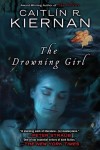 Last week I shared the book trailer for Caitlin R. Kiernan‘s new novel, The Drowning Girl: A Memoir. This week I offer this fantastic review by Brit Mandelo at Tor. com (the review is fantastic in its praise of the novel but also its deft understanding of it). If I wasn’t super-excited about The Drowning Girl before, I would be after reading that review. Here’s a teaser:
Last week I shared the book trailer for Caitlin R. Kiernan‘s new novel, The Drowning Girl: A Memoir. This week I offer this fantastic review by Brit Mandelo at Tor. com (the review is fantastic in its praise of the novel but also its deft understanding of it). If I wasn’t super-excited about The Drowning Girl before, I would be after reading that review. Here’s a teaser:
That’s another bit that I fell in absolute love with: the construction of an argument about what stories are or can be, and what ghosts are or can be, that revolves around an understanding of hauntings as a sort of contagious social meme.
Also, enjoy Kiernan’s poem, “Atlantis,” over at Strange Horizons.
I know Madolyn will be interested to learn how zombies and superheroes conquered highbrow fiction (I’m just teasing Madolyn, but Joe Fassler does a good job of covering the subject, I think).
 Not many people know I collect bookmarks, but is anyone really surprised to hear it? Edd McCracken’s brief reverie on bookmark monogamy was quite strange to me.
Not many people know I collect bookmarks, but is anyone really surprised to hear it? Edd McCracken’s brief reverie on bookmark monogamy was quite strange to me.
♦ Encouraging article by Victoria Strauss at The Washington Post about why STEM (Science, Technology, Engineering, and Math) is not enough and why we still need the humanities. I say “encouraging” because the more people write and talk about the humanities, the better. A lot of folks don’t seem to realize that to make technological leaps requires creativity, which is best developed through the humanities. Everything has to work together, people. Via.
♦ If masks disturb you, I ask that you not click through this link and watch this video about how to make frighteningly realistic masks of human faces. I beg you: don’t do it.
♦ Writers’ Corner. Here you go, writers:
Chuck Wendig tells you 25 things you should know about word choice.
My MFA buddy Cynthia Kraack has some thoughts about how MFA programs can better prepare writers for the business-end of writing:
How to bring this reality into the MFA world could be as simple as offering solid course material on today’s publishing business, as creative as requiring that graduates display social media competency, or as innovative as collaborative ventures with other academic areas. At the least, MFA programs owe it to their students to provide space for individuals to discover their own definition of success as a writer along with faculty-led guidance for how to build a course of study to support those goals.
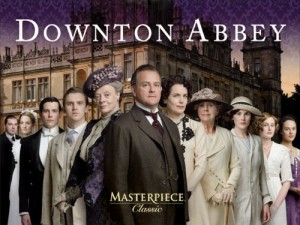 Okay, friends, here’s a confession: I finally watched the first season of Downton Abbey and loved it (is anyone surprised?). Cathy Day, whose blog I also love, wrote a post in January about why Downton Abbey is addictive and instructive (for writers), which I held off reading until I watched it. She looks at the first fifteen minutes of the first episode and examines how major dramatic questions are introduced, how each scene has some spike of conflict, and also how we’re supposed to “read” the series.
Okay, friends, here’s a confession: I finally watched the first season of Downton Abbey and loved it (is anyone surprised?). Cathy Day, whose blog I also love, wrote a post in January about why Downton Abbey is addictive and instructive (for writers), which I held off reading until I watched it. She looks at the first fifteen minutes of the first episode and examines how major dramatic questions are introduced, how each scene has some spike of conflict, and also how we’re supposed to “read” the series.
If you want some help understanding the “show don’t tell” rule, Ali Luke has some tips for you. Via.
The comments on Charlie Jane Anders’ article about David Kowalski’s The Company of the Dead makes me worry about even thinking about attempting my own alternate history. Does anyone else have a similar sense of dread?
David Malki !’s Wondermark is one of my favorite webcomics, and this week he slipped in some really good writing advice. Check out “The Wish of the Starhorse“—and be sure after you’ve finished to run your cursor over the cartoon. That idea is important to keep in mind when you’re writing your characters, whether they’re the heroes or (perhaps even especially) the villains.
Trying to figure out how to be more or at least more consistently creative? Simon Whaley recommends keeping a creativity diary.
Nick Mamatas says to beware the wineglass-shaped story.
Theodora Goss posted about needing to get her writing life in order, which really spoke to me, particularly this bit:
There’s more cutting, sorting, organizing in my future, because I really do need to get my life into some semblance of order. I know the life I want to create for myself. It’s just a question of whether I have the courage to do it, the will to work hard enough. I think I do.
Of course, I’ve been telling myself I need to my life in order for a while….
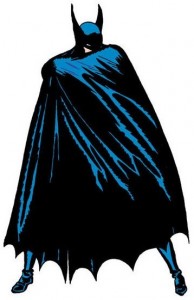 ♦ Over at The Comics Journal, Ken Parille’s very fine article, “‘This Man, This Monster’: Super-Heroes and Super-Sexism,” had some fascinating insights into why and how male heroes are depicted (I share a lot of these insights—if only I’d written my essay about this subject when I had the chance!). Here’s a teaser for you:
♦ Over at The Comics Journal, Ken Parille’s very fine article, “‘This Man, This Monster’: Super-Heroes and Super-Sexism,” had some fascinating insights into why and how male heroes are depicted (I share a lot of these insights—if only I’d written my essay about this subject when I had the chance!). Here’s a teaser for you:
Our ancestors were one in a long line of societies in which religion’s defining struggle—the war against the flesh—revealed itself in ideas about clothing. These codes have been most visible in female fashion: since the sight of an ankle or a wrist can instantly send men into a sexual frenzy, they must be protected, not from female temptresses, but from themselves, from their own uncontrollable animalistic and even monstrous nature.
The actions of fanatical males around the world remind us that a woman can be stoned (or worse) if she fails to comply with her culture’s dress code. It would be easy, then, to think that such codes are fundamentally about the patriarchy’s need to control girls and women, while liberating boys and men. But such systems also tell us about males’ fears and desires about other males’ bodies.
Do click through and read the whole article! Via.
♦ Don’t watch this commercial if you’re easily creeped out (the still image might tell you all you need to know), but I really liked the visual imagery—yes, a pun! Plus, it reminded me and will probably remind other Sandman readers, of The Corinthian. Via.
♦ Another well-done commercial, Levi’s Stretch to Fit jeans. Some lovely modern ballet (thanks to Micah for linking to this video on Facebook!), and those jeans do stretch to fit.
♦ And I leave you with astrophysicist Dr. Neil DeGrasse Tyson‘s response to the question, “What is the most astounding fact you can share with us about the universe?” (via):
What I like about Tyson’s astounding fact—that we are made of the universe—is that how perfectly it can work with any belief system, secular or religious (if you replace “universe” with your deity of choice). And it puts me in mind of one of my favorite quotations about religion, from the Babylon 5 television series, wherein Delenn attempts to explain her people’s religious beliefs: “We believe that the universe itself is conscious in a way that we can never truly understand. It is engaged in a search for meaning. So it breaks itself apart, investing its own consciousness in every form of life. We are the universe trying to understand itself.” Or, to quote E.M. Forster, “Only connect….”

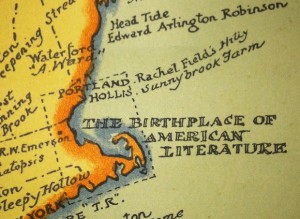
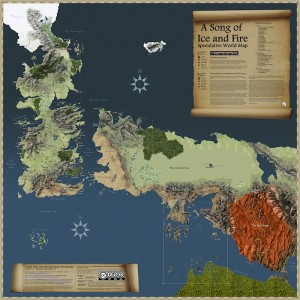
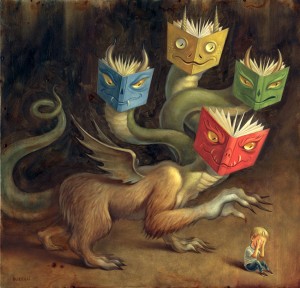





Thanks so much for the link, Robert!
I love Downton Abbey too — what a brilliant post by Cathy. And hey, I now have writerly justification for obsessively rewatching Seasons 1 & 2 before Season 3 later this year. 🙂
Hey Stutts! I look forward to the links every week. Here are some I thought you might enjoy (forgive me if you have already seen these)-
I love mashups. This is a recent favorite: Sigur Ros and The Beach Boys-
http://soundcloud.com/catacombkid/catacomkbid-sigur-ros-vs-the
Regarding superheroes-
http://gammasquad.uproxx.com/2012/02/what-if-male-superheroes-costumes-were-designed-like-female-superheroes-costumes#page/1
The combination of music and video is so great-
http://www.youtube.com/watch?v=4ZT0wlH4y8k
Thanks for the links, Mike! I did indeed enjoy all of them (I really like the Sigur Ros/Beach Boys mash-up).
Robert,
Hope you are not being too serious about the comments on io9 regarding COTD. There are enough serious arguements going on about actual historical events. If you even think, for a moment, about the responses a fictional time line will get… well that way lies madness. Is that your next project? Have you considered writing about a timeline in which no one disputes alternate timelines? You’ve got your first reader here!
Brilliant site by the way.
Thanks, David! (And, no, I wasn’t being too serious about the io9 comments!)